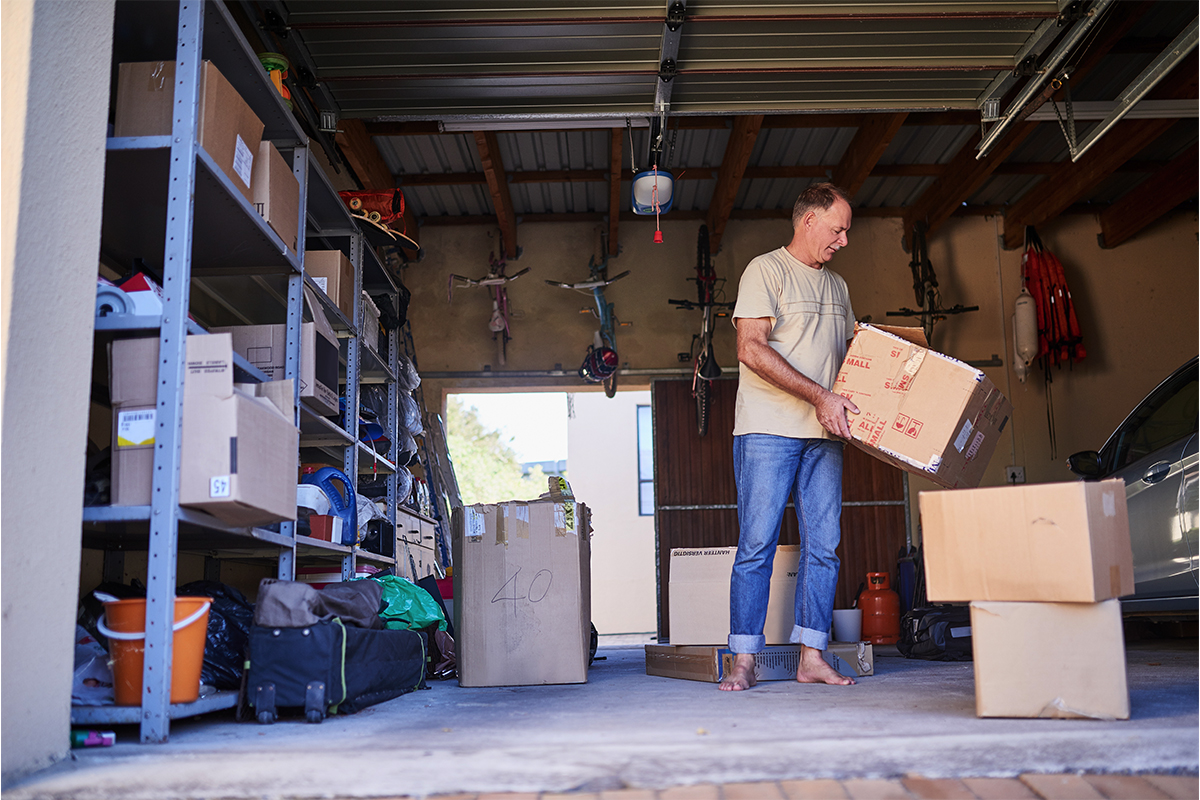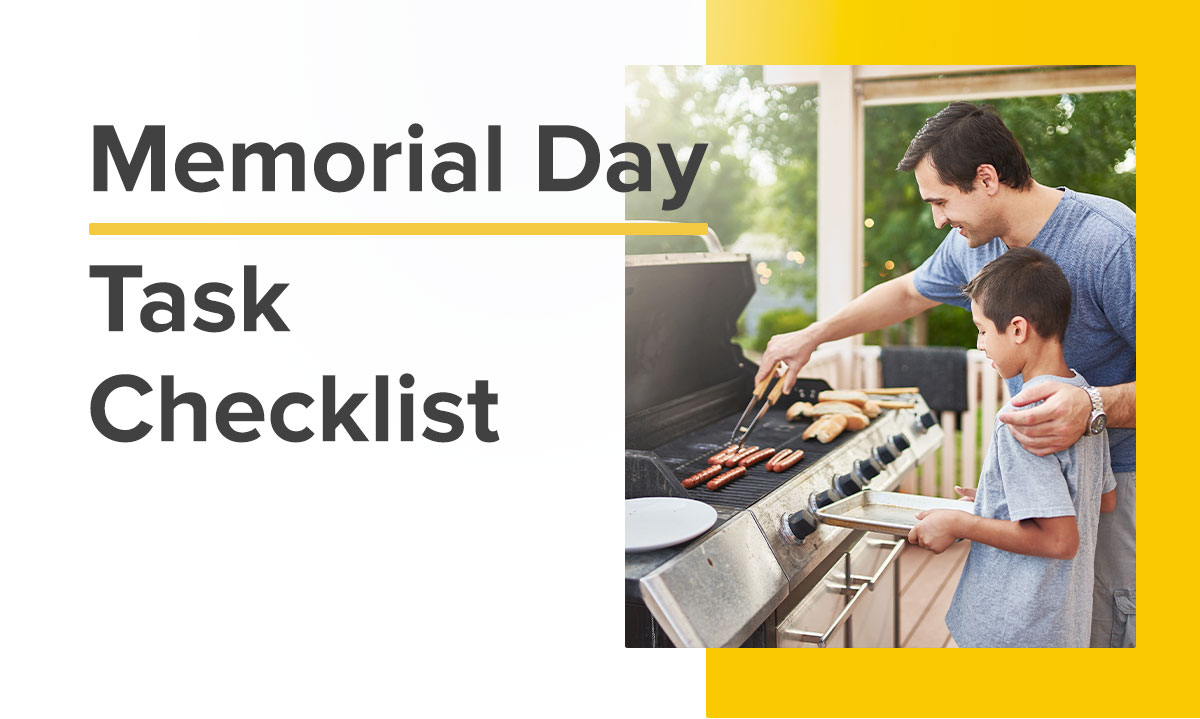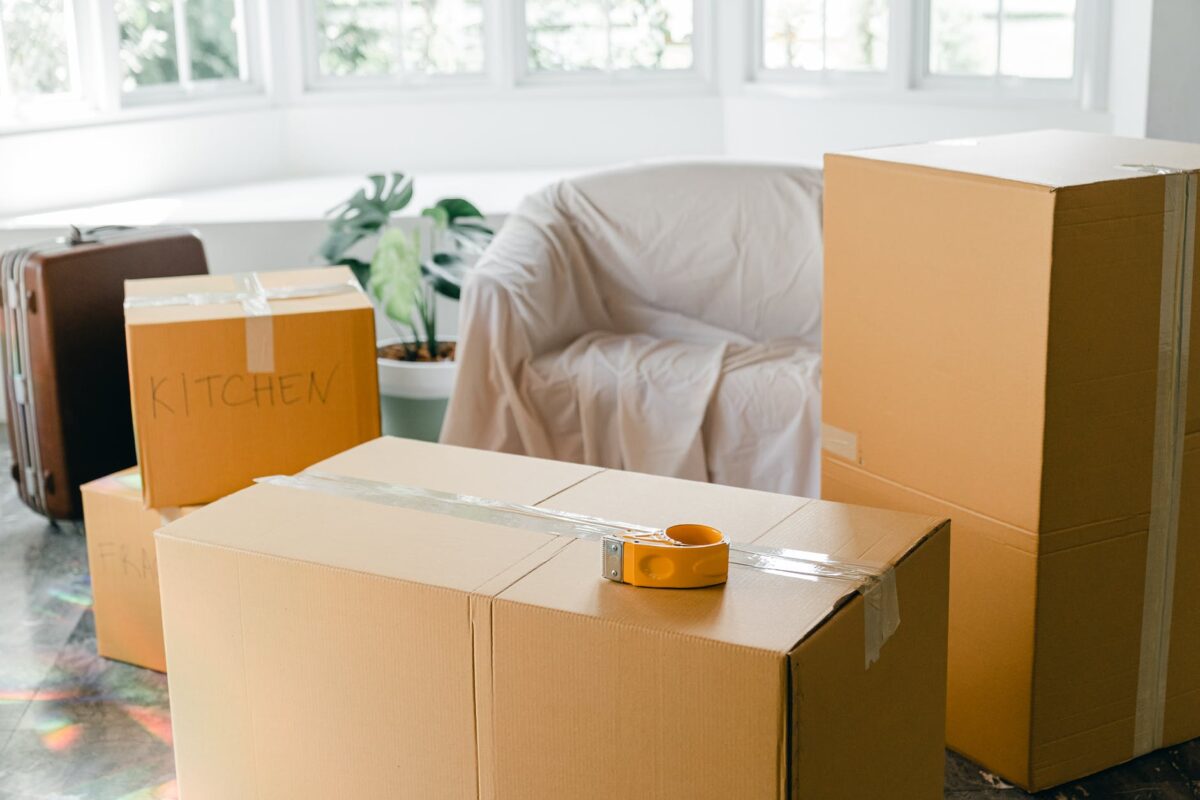Moving to a new home is an important milestone in everyone’s life, but the logistics and costs can quickly turn it into a nightmare if you haven’t thought all the factors through. Understanding the factors that influence costs—like the distance of your move, the type of services needed, and the size of your household—can help you plan your moving process with comfort and ease.
Factors That Influence the Cost of Movers
Whether you’re looking for a full-service move or simply a truck rental for a few items, budgeting and planning ahead is essential. Read on to discover what you need to know to make informed budget decisions and keep your relocation on track.
Type of Move
The type of move you’re planning plays an important role in the overall cost. Here’s how different moving scenarios—local, long-distance, and international—affect pricing:

Local Moves are generally the most affordable and are defined as moves within a 50- to 100-mile radius. Pricing is based on an hourly rate, which includes the movers’ time, truck usage, and additional labor.
Long-Distance Moves involve crossing state lines or traveling hundreds of miles. The cost for long-distance moves are based on the total weight of your belongings and the distance traveled. Added expenses like fuel, tolls, and overnight accommodations for the crew may also apply, making long-distance moves pricier than local ones.
International Moves involving relocating overseas are by far the most expensive and complex. Costs for international moves depend on shipping methods by air or sea, customs fees, and any necessary documentation. Additional costs like packing services for fragile items or long-term storage can quickly add up.
Services Offered
The moving services you choose have a significant impact on the overall cost of your relocation. Here’s a breakdown of what’s available:

Full-Service Moving is by far the most convenient and hands-free moving experience. Full-service moves include everything from packing your belongings to loading them onto the truck, transporting them to your new home, and unpacking them upon arrival. Obviously, this option saves time and effort but also comes at a premium, as it often requires more time, labor, and coordination on the moving team.
Partial Moving Services is a more budget-friendly approach. Partial services let you select specific tasks for professional help. For example, you can hire movers to handle only the heavy lifting, like loading and unloading your belongings, while you take care of the packing and transportation yourself. This option offers much more flexibility and cost savings.
Optional Add-Ons, like furniture assembly or disassembly, appliance setup, and temporary storage, are becoming quite popular. While these extras add convenience, they also increase the total cost.
Move Size and Weight
Two of the most important factors in determining moving costs are the size of your home and the weight of your furniture.
Home Size is a key factor simply because the smaller the home, the less to pack, load, and transport. Basically, the larger your home, the higher the moving costs.
Weight of Belongings can also influence moving costs, meaning heavier furniture and bulky appliances increases the price to move. For long-distance moves, many moving companies will calculate charges based on the total weight of your items. Selling or donating unwanted or unused furniture is a great way to lower the weight of your move and save money.
Distance of the Move
The distance you’re moving plays another role in determining how far your costs will go.

Short-Distance Moves within a local area are calculated by the hour. The closer the distance, the fewer hours required, which keeps costs relatively low. Keep in mind however, urban areas with heavy traffic or challenging parking can add time and will consequently increase the final price.
Cross-Country Moves are expensive mainly because of the logistical factors involved. Long-distance moves are priced based on mileage, weight, and time. These moves often include additional costs like fuel, tolls, and overnight accommodations for moving crews. Many companies will also factor in the cost of wear and tear on their vehicles, making cross-country moves more expensive overall.
Average Costs of Movers
Moving costs can vary widely by a number of factors including whether you are hiring local movers, moving long distance, or moving special items. See breakdown below.
Local Moving Costs
For local moves, costs are typically charged by the hour, with rates varying based on the size of the crew and the scope of work.
Hourly Rates: On average, local moving companies charge between $50 and $150 per hour. This rate often includes two movers and a truck, but additional labor, such as a third or fourth mover, can increase the hourly cost by $25 to $50 per person.
Crew Size: The size of the moving crew depends on the size of your home. A small apartment might require just two movers, while a larger home may need three or more. Keep in mind that the longer the move takes—including packing, loading, or assembling furniture—the higher the total cost.
Long-Distance Moving Costs
Long-distance moves are typically priced on mileage and the weight of your belongings, making them more complex to calculate than local moves.
Cost Breakdown: For moves over 100 miles, prices can range from $1,000 to $10,000 or more, depending on the distance and load weight. On average, moving a 1-bedroom apartment across state lines might cost around $1,500 to $2,500, while a larger 4-bedroom home could exceed $5,000 to $7,000.
Specialty Items
Moving specialty items requires extra care, equipment, and additional costs.
For instance, moving a piano typically costs between $150 and $500 for local moves, with long-distance moves exceeding $1,000.
Valuable antiques require custom crating and extra padding, which can add $200 to $1,000.Oversized items, like sectional sofas or king-size beds, require disassembly and reassembly, increasing labor costs. Movers might charge an extra $50 to $200 for these services.
Hidden Costs to Watch Out For
Understanding potential extra costs can help you avoid surprises on your final moving bill.

Additional Fees
Moving companies charge additional fees for a variety of circumstances, including stairs. If your move requires multiple flights of stairs it can add $50 to $100 per flight.
Additionally, carrying long distances (typically 75 or more) can incur additional fees running between $100 to $500, depending on the distance and difficulty.
Finally, long-distance moves typically require fuel and tolls in the final bill. Fuel is usually calculated as a percentage of the total cost however it can add up to anywhere between $50 to several hundred dollars.
Insurance and Liability Coverage
Most moving companies offer insurance while transporting your items ranging from basic to full-value. Basic protection provides minimal reimbursement for lost or damaged items—usually $0.60 per pound per item. On the other hand, full-value protection will either repair, replace, or reimburse the full value of the lost or damaged item. Full-Value insurance typically adds 1% to 2% of the total move cost.
DIY Moving vs. Hiring Movers
When deciding between a DIY move and hiring professionals, it’s important to weigh the pros and cons.

Pros and Cons of DIY Moving
Taking the DIY approach to moving can be an attractive choice, but it comes with its own set of trade-offs. One pro of a DIY move is the flexibility; you have complete control over the packing process. However, while renting a truck and handling the move yourself is often cheaper, you still have to do the heavy lifting, and pay for the truck or any equipment you need.
Benefits of Hiring Professional Movers
Hiring professional movers provides convenience and efficiency. Professional movers handle the heavy lifting, from packing to unloading, so you can focus on other aspects of the move (such as cleaning your old or new home). Professional movers also know how to safely pack and transport your belongings, making sure your items arrive to their new location in one piece.
Cost Comparison
Renting a truck for a local, DIY move can cost anywhere between $100 to $300. Renting a truck for a long-distance move can range between $1,000 to $2,000, depending on the distance and size of the truck. For a local move, hiring professional movers costs between $400 to $1,500. A long-distance move for a 2-bedroom home can cost between $2,500 to $5,000 or more, including weight and mileage.
Tips to Save Money on Moving Costs
Smart planning can help you cut costs and make your move more efficient.
Decluttering Before the Move
One of the simplest ways to save money on your move is to reduce the number of items you take with you. This also means less time packing and unpacking, making the entire moving process more efficient. Donating, selling, or recycling unwanted items is an ideal option to make your move lighter—literally and financially.
Timing Your Move
When you move can impact how much you spend. Moving during off-peak seasons, such as in the winter, can help you secure better deals. Moving is also business on the weekends and at the beginning or end of the month. Opting for a mid-week or mid-month move can lead to lower rates and more flexible scheduling.
Getting Multiple Quotes
Don’t settle for the first moving company you come across—shop around to find the best deal. Moving costs vary widely; getting at least three estimates makes sure you’re paying a fair price. Be sure to look out for hidden fees and ask about insurance coverage to avoid any surprises later.
Packing Yourself
Packing your own belongings significantly reduces labor costs and gives you more control. Try to upcycle existing materials for packing, such as blankets and towels, and source boxes from local stores to save money.
How to Choose the Right Moving Company
Choosing the right moving company requires careful consideration.

Research and Reviews
Before hiring a moving company, it’s crucial to do your homework by researching their reputation online. Read reviews on Google or Yelp, or check their reputation through the Better Business Bureau. You could also ask the moving company for references for firsthand experiences.
Licensing and Insurance
Hiring a licensed and insured moving company isn’t just a formality—it’s essential for safeguarding your belongings. Start by checking for a U.S. Department of Transportation (DOT) number for interstate moves, or confirm local licensing for a local move. Also make sure the company offers basic liability insurance and ask about additional coverage options if interested.
Avoiding Scams
Unfortunately, not all moving companies are legitimate. One warning sign includes quotes that seem too good to be true; it could lead to hidden fees or surprise charges later. Additionally, any move requiring upfront cash payments is never a good sign. Legitimate movers typically require a deposit but never full payment before the move occurs. Finally, verify the moving company has a business address and contact information. A little caution upfront can save you a lot of trouble later.
Conclusion

Understanding the factors that influence moving costs—like the type of move, services needed, and distance—is the key to staying within budget and reducing stress. Additional considerations like the size and weight of your belongings, timing, and potential fees can further impact the final price.
Thorough planning is essential. Take the time to declutter your belongings, compare multiple quotes, and research moving companies to get the best value. Whether you opt for a DIY move or hire professionals, having a clear budget and strategy can make all the difference.
By planning ahead and choosing the right services for your needs, you’ll not only save money but also have a smoother, more efficient moving experience. Ready to make your move? Explore reliable, affordable moving services on Taskrabbit today!

























